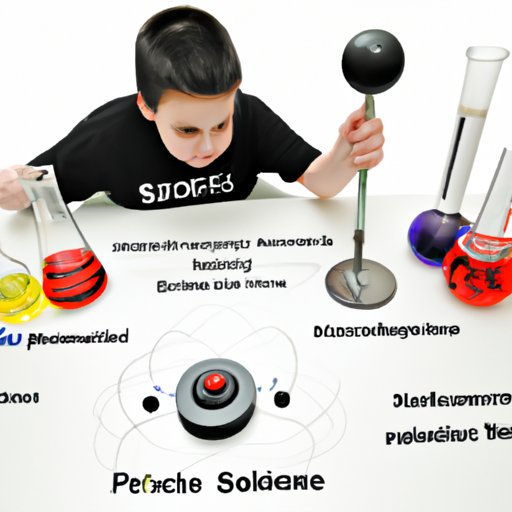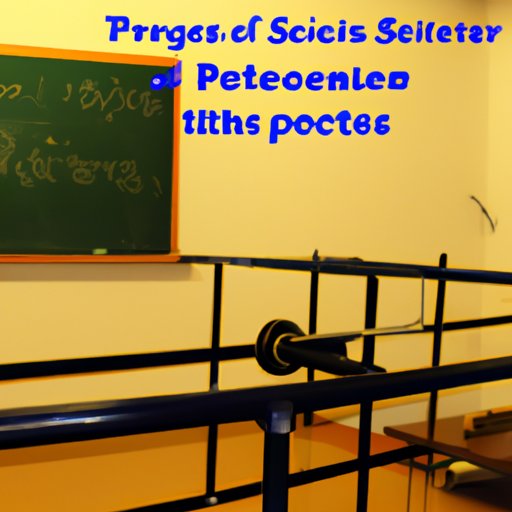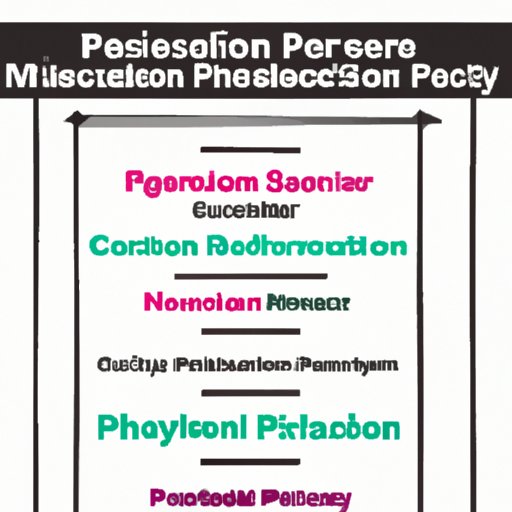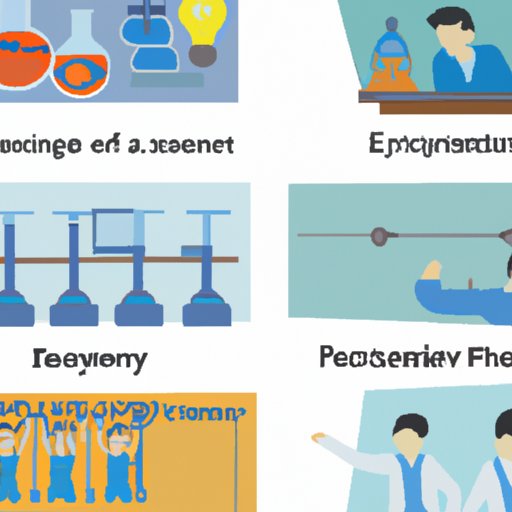Introduction
Physical science is an interdisciplinary field of study that explores the laws of nature. This covers topics like matter, energy, chemical reactions, forces, motion, heat and temperature, waves, and electromagnetism. It also includes nuclear physics, which involves the study of atoms and their components. A physical science class provides students with a foundation to understand the world around them.

Exploring the Core Concepts of Physical Science
In a physical science class, you’ll learn about the core concepts of the discipline. These include:
Matter and Energy
Matter is anything that takes up space and has mass. All matter is made up of tiny particles called atoms. Energy is the ability to do work or cause change. It comes in many forms, including kinetic energy (the energy of motion), potential energy (stored energy), and thermal energy (heat).
Chemical Reactions
Chemical reactions involve the rearrangement of atoms to form new substances. In these reactions, bonds between atoms are broken and new ones are formed. This process releases or absorbs energy, depending on the type of reaction.
Forces, Motion, and Work
Forces are interactions between two objects that can cause changes in the motion of those objects. Motion is the movement of an object through space over time. Work is the transfer of energy from one object to another.
Heat and Temperature
Heat is the transfer of energy from one substance to another due to differences in temperature. Temperature is a measure of how hot or cold something is relative to a reference point. Heat and temperature are related, but they are not the same thing.
Waves and Electromagnetism
Waves are disturbances that travel through a medium. Electromagnetism is the interaction between electric and magnetic fields. The behavior of electromagnetic waves is governed by Maxwell’s equations, which describe how electric and magnetic fields interact with each other.
Nuclear Physics
Nuclear physics involves the study of atoms and their components. Atomic nuclei are composed of protons and neutrons, which are held together by the strong nuclear force. Radioactive decay occurs when an atom’s nucleus decays, releasing energy and particles.
Physical Science Experiments to Try at Home
One of the best ways to learn physical science is to conduct experiments. There are many different types of experiments you can try at home, such as measuring the speed of sound, making a thermometer, or creating a cloud in a bottle. When conducting experiments, it is important to take safety precautions such as wearing protective goggles and gloves and following instructions carefully.
Depending on the experiment, you may need certain supplies, such as beakers, test tubes, and thermometers. You can find many of these items online or in a store that sells scientific equipment. You may also need some household items like food coloring, balloons, or baking soda.

Benefits of Taking a Physical Science Class
Taking a physical science class can have many benefits. One benefit is improved understanding of scientific principles. By studying physical science, you will gain a better understanding of how the world works and how different phenomena interact with each other. This knowledge can be applied to many different areas of life.
Another benefit of taking a physical science class is enhanced problem solving skills. Many of the concepts learned in physical science can be used to solve complex problems. By studying physical science, you will become more adept at analyzing data and finding solutions to difficult problems.
Finally, taking a physical science class can increase your knowledge of mathematics and its applications. Many of the concepts studied in physical science require a basic understanding of mathematics, such as algebra and calculus. By learning these mathematical concepts, you will be able to apply them to other areas of study.

Career Paths for Physical Science Majors
There are many career paths available to those who major in physical science. One option is engineering. Engineers use scientific principles to design and build machines, structures, and systems. They often work in the fields of aerospace, civil, electrical, and mechanical engineering.
Another option is research. Researchers use scientific methods to investigate questions and develop new theories. They may work in laboratories, universities, or government agencies.
Finally, there are opportunities in science education. Science teachers help students understand scientific concepts and prepare them for future studies in science. They may teach at the primary, secondary, or postsecondary level.
Understanding the Math Behind Physical Science
In order to understand the concepts studied in physical science, it is important to have a basic understanding of mathematics. This includes basic arithmetic, algebra, and calculus. Algebra is used to solve equations and calculate unknown values. Calculus is used to study the rate of change of a function and to analyze the behavior of functions.
Conclusion
Physical science is an interdisciplinary field of study that explores the laws of nature. It covers topics like matter, energy, chemical reactions, forces, motion, heat and temperature, waves, and electromagnetism. In a physical science class, you’ll learn the core concepts of the discipline and be able to conduct experiments at home. Taking a physical science class can lead to career opportunities in engineering, research, and science education. Additionally, studying physical science requires a basic understanding of mathematics.
(Note: Is this article not meeting your expectations? Do you have knowledge or insights to share? Unlock new opportunities and expand your reach by joining our authors team. Click Registration to join us and share your expertise with our readers.)
